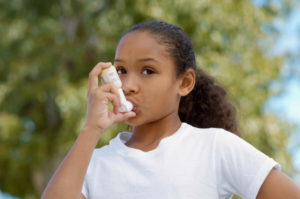
The reason Black children suffer from asthma more than children of other races is because African Americans tend to live closer to power plants and factories that emit poisonous chemicals into the air. Children in these communities often spend a considerable amount of time playing outside, and commute to different places in the area (i.e. school, homes of friends and relatives) on foot, which means more time outside.
Not only do these air pollutants increase the risk of asthma, but the people who live in these communities are also more likely to have cardiovascular disease and respiratory illness. Air contamination also puts newborns at risk for asthma and other sicknesses. The African American infant mortality rate is nearly two times more than the national rate.
Since African American children are visiting the hospital more for asthma, this indicates that their families are spending a considerable amount on healthcare. The Guardian reports that African Americans spend more of their income on healthcare (16.5 percent) than their White peers (12.2 percent). Statistics also reveal that nearly one in five African Americans don’t have health insurance.
In order to reduce asthma-related hospital visits among children, there are some practical measures parents can take. While there is no known cure for asthma, children can spend less time outdoors to reduce exposure to pollutants. Removing dust from the home can also reduce asthma symptoms, and parents are encouraged to use electrical appliances in the house, since the nitrogen dioxide that comes from gas appliances can lead to breathing problems. Increasing water intake can also increase hydration of the respiratory tract and lessen the likelihood of asthma attacks.


